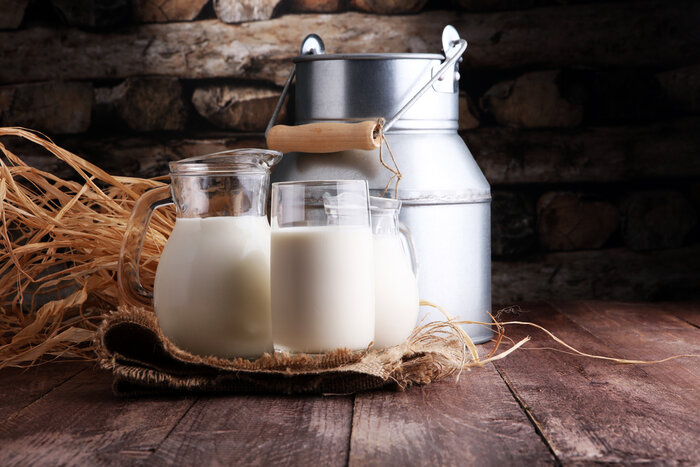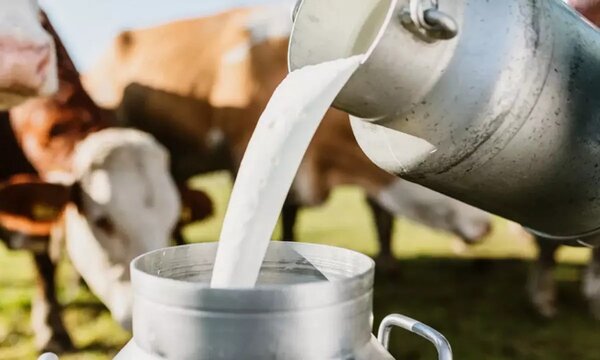Milk is a nutrient-rich beverage that is consumed by millions of people worldwide. It contains a range of essential nutrients such as protein, calcium, vitamins, and minerals. One of the most commonly asked questions about milk is how many calories are in a glass of milk?
How Many Calories In Milk

A glass of milk typically contains around 120 calories. However, this can vary depending on the type of milk and the fat content. For example, a glass of whole milk contains around 150 calories, while a glass of skimmed milk contains around 80 calories. It is worth noting that flavoured milks, such as chocolate or strawberry milk, often contain additional sugar and calories.
How Much Protein In Milk
In addition to calories, milk is also a good source of protein. One glass of milk contains approximately 8 grams of protein. Protein is essential for building and repairing tissues in the body, making it an important nutrient for athletes and those looking to build muscle.
Foods With Highest Calcium : How Much Calcium In Milk
Calcium is another important nutrient found in milk. One glass of milk typically contains around 30% of the recommended daily intake of calcium. Calcium is important for maintaining strong bones and teeth, and it is particularly important for children and adolescents, who are still developing their bone mass.
Nutrients In Milk - What Nutrients In Milk
Milk also contains a range of other important nutrients, including vitamins A and D, as well as potassium and magnesium. It is a good source of carbohydrates, with one glass of milk containing around 12 grams of carbs.
How Much Fat In Milk

When it comes to fat, the amount of fat in a glass of milk can vary depending on the type of milk. Whole milk contains around 8 grams of fat per glass, while skimmed milk contains virtually no fat. It is worth noting that while whole milk does contain more fat, it also contains more of the fat-soluble vitamins A and D.
Is Milk Good For You
Milk is generally considered to be a nutritious and healthy beverage that provides a range of important nutrients to the body. Milk is rich in protein, calcium, vitamins, and minerals, making it an important part of a healthy and balanced diet.
One of the primary benefits of drinking milk is its high calcium content. Calcium is essential for building and maintaining strong bones and teeth, and milk is one of the best sources of calcium available. Drinking milk regularly can help to reduce the risk of osteoporosis, a condition that causes bones to become brittle and fragile.
Milk is also a good source of protein, which is essential for building and repairing tissues in the body. Protein helps to promote muscle growth and repair, making it an important nutrient for athletes and those looking to build muscle mass.
In addition to protein and calcium, milk contains a range of other important nutrients, including vitamins A and D, potassium, and magnesium. These nutrients play important roles in the body, helping to maintain healthy immune function, support healthy vision, and regulate blood pressure.
It is worth noting that some people may be lactose intolerant, which means that they have difficulty digesting lactose, a sugar found in milk. For these individuals, milk may cause digestive issues such as bloating, gas, and diarrhea. However, there are many lactose-free milk alternatives available, such as soy milk and almond milk, that provide similar nutritional benefits.
In conclusion, milk is a nutrient-rich beverage that is a good source of protein, calcium, vitamins, and minerals. While the calorie and fat content of milk can vary, it is generally a healthy addition to a balanced diet for those who can tolerate it, milk is generally considered to be a healthy and nutritious beverage that provides a range of important nutrients to the body. Drinking milk regularly can help to support bone health, muscle growth, and overall health and wellness.